Baby-Sitters Club Creator on Season 2, Kristy's Dad, and the Show's Future
[Editor's note: The following contains spoilers through the Season 2 finale of The Baby-Sitters Club, "Kristy and the Baby Parade."]
Fun fact: Prior to becoming a writer for shows including GLOW and Supergirl, The Baby-Sitters Club creator Rachel Shukert developed her understanding of television as a recapper, covering shows like the glorious trainwreck that was NBC's Smash for Vulture.
"I feel being a recapper really taught me how to write television because you sort of have to watch these episodes and then see how they're put together," she told Collider as we got on the phone to discuss the second season of her Netflix YA adaptation. "What is the A story? What is the B story? What is the C story? How are these woven together? Where is the climax? What is the throughline of each of these stories? All these questions you have to ask yourself when you're writing an episode, I feel having to kind of take these episodes apart and put them back together again was like grad school. Except they paid me."
It's experience that paid off, as The Baby-Sitters Club Season 2 builds on the promise of the first stellar season, continuing to follow the adventures of middle school girls Kristy (Sophie Grace), Mary Anne (Malia Baker), Claudia (Momona Tamada), Stacey (Shay Rudolph), and Dawn (Kyndra Sanchez, subbing in for Season 1's Xochitl Gomez) with heart, humor, and storytelling that appeals to all ages.
Below, Shukert explains the importance of casting actors who really feel like 13-year-olds, why Season 2 included some very sad choices for the story, and who she wants to cast as Kristy's deadbeat dad, should he ever appear on screen. (Clueless reunion, anyone?). We also discussed the show's future, as Season 3 has yet to be greenlit... and the cast isn't exactly staying the same age.
Collider: When it came to making a modern-day version of The Baby-Sitters Club, what was the detail that unlocked it for you?
RACHEL SHUKERT: It was the phone, honestly, because I felt that of course was the thing that I immediately was like, "Oh well, but what about the phone?" The whole point of the club is that they have to gather around this one phone, and somebody has to answer and it's all in real-time. But that was also the kind of thing that unlocked it for me because when they came to me with this project to sort of start talking about it, I was a brand new mom. I had just had a baby. So all of a sudden I was thinking about having to obtain childcare in this totally different way and realizing that all of these things that are supposed to make it easier, don't make it easier. That there are all these websites that you have to pay to join. And then you have to remember your password when you haven't slept in three months and are up all night. My brain was so messed up after having a baby. I was just like, "I don't know my password, what is a credit card? I don't know."
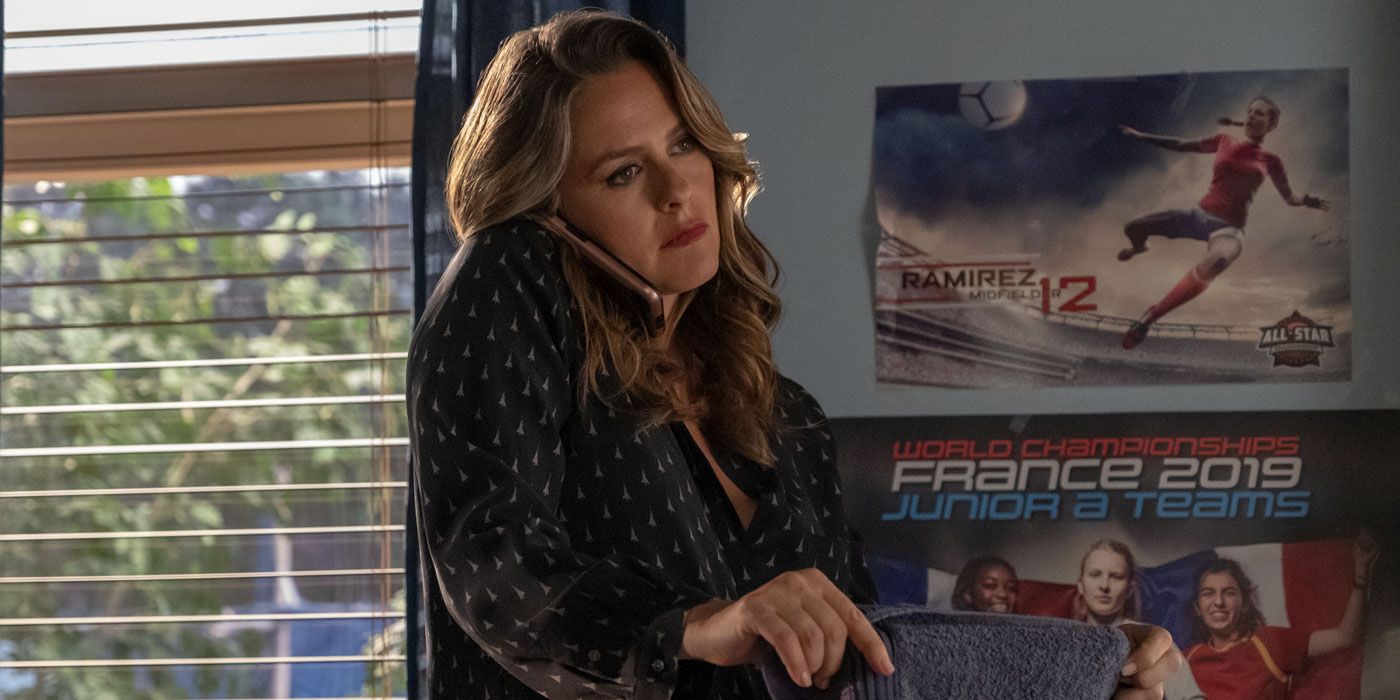
Yeah, I remember Liz (Alicia Silverstone) going through that in the pilot, and it felt very authentic.
SHUKERT: Yeah, so the simplicity of it was kind of what cracked it for me. That sort of was the guidepost of it. I'm like oh, well, no, it's because that's the attraction. But it's simple that you just call and they're all there and it gets figured out in 30 seconds. It's not 20 texts over 90 minutes to nail this down, and if you miss one, oh, then you don't hear back. It's just all there in the moment and that is really appealing. And that was sort of the ethos, I guess, that we just sort of threaded through the show — that you don't have to change that much. You just have to sort of know why it's this way now. That's what we sort of tried to stick to.
So I was a Baby-Sitters Club fan growing up, of course. And the thing that always sticks with me about my memory of the books is that I started reading them when I was very young and in my head, the girls of The Baby-Sitters Club will always be older than me. Even though they're forever 13 in the books, they just always feel like someone I'm looking up to. But what's so interesting about watching the show is the reminder of, "Wow, they are 13 years old. That is not old."
SHUKERT: Yeah, no, it's not old. It's very young.
So in approaching it, what was key to you in terms of basically figuring out a way to make it clear that these are young, capable girls, but that they are that young?
SHUKERT: Well, a lot of it was casting actresses that are really that age. I feel like often people cast 17-year olds to play 14-year olds or, 22-year olds to play 17-year olds. And in the casting, I remember really trying to find the sweet spot of girls that seemed young, like they were really that age, but also felt they were believably old enough that you would leave your kids with them.
I remember at some point we were thinking, well, we'll look at 11-year olds because then they can kind of age into it, and they won't look too old too fast. And then we would look at 10 or 11-year olds and you're, oh, these are little children. These children need babysitters themselves. Their voices haven't dropped at all. It's something in their eyes, I don't know. So we were like, well we really have to get girls that are this age. And they really all have to be kind of the same age because if you have one that is older, they really stick out.
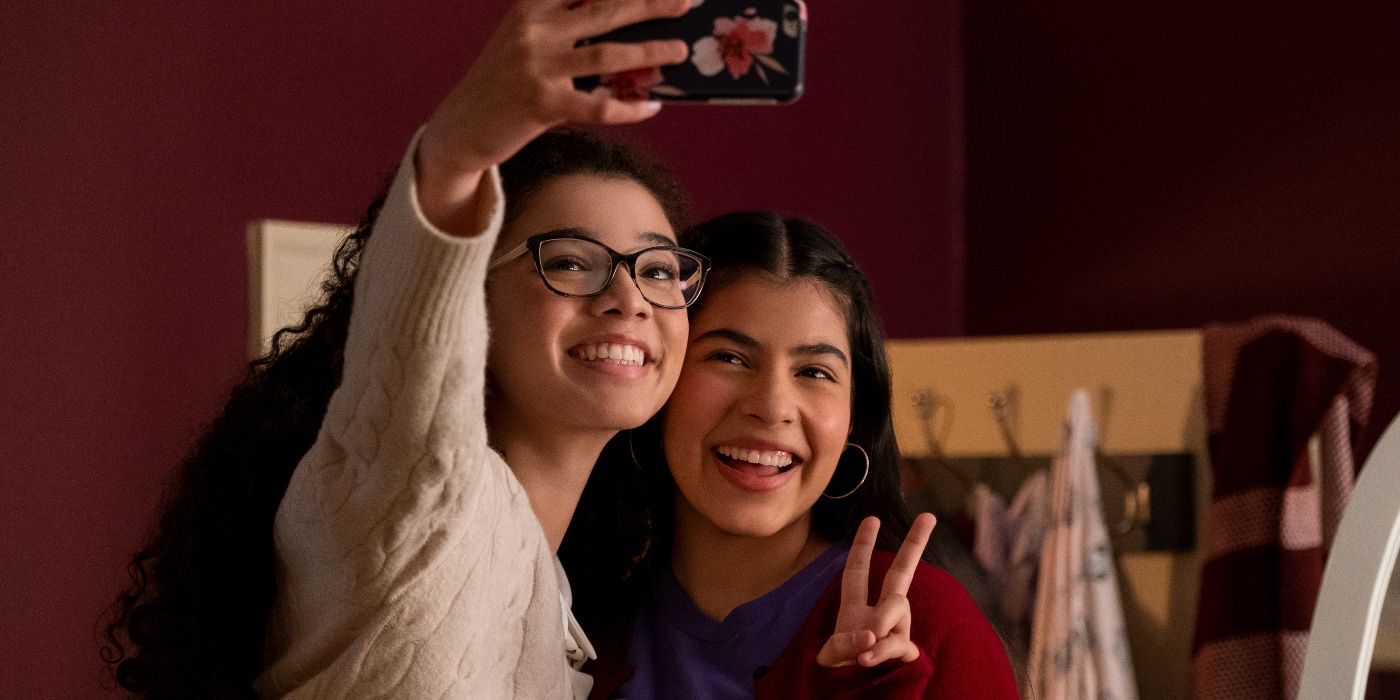
So that was a lot of it, just choosing these actresses. I think some of it too was just thinking about what you're really like at that age, when you're really in this cusp between being a child and more of a teenager. And in ways I feel that is when you're almost your truest self, because you kind of haven't developed into these teen quirks yet where you're like, well, I'm part of this hip culture. I'm a skater, I'm a goth or I'm a... You haven't quite put on that kind of teen identity that's really your focus yet. But you're also old enough to kind of know yourself and have real interests and a real form of personality and no one has quite yet told you that that's stupid. Because that's actually what happens in middle school, right? That's when you're told that everything about you is wrong.
And I think part of the fantasy of The Baby-Sitters Club is that these characters find a group of friends where nobody tells them that everything about them is wrong. So they get to just stay themselves, even as they age. And that I think was the thing we really thought about a lot. It's like what are the purest forms of each of these characters? Because that's the form that feels 13 to me.
Of course. And going back to the casting question, how much were you going into this with an awareness that unfortunately kids can't stay 13 for extended periods of time?
SHUKERT: Well, we tried to figure out all kinds of ways to medically stunt their growth, but apparently that's not a lot. [laughs] We just sort of figured we would go with it. Because even shooting the first season, they would grow. These kids change so fast. We just kind of embraced that they're just going to look a little different from season to season.
And there's a lot you can do I find with hair and makeup too. I think part of the reason that teenage girls start to look older is because they consciously make themselves look older. But if you're not putting on lashes and eyeliner and you're not going to have a perfect blowout, then they still sort of look like kids. So a lot of the stuff I think that really makes them look older is cosmetic.
I was getting sort of nervous as they were getting very, very glamorous and beautiful in their Instagram pages, over the hiatus. And then they all came back to set and all started to scream when they would see each other. And they were just in their wardrobes from the show and they all looked kids again. They're a little older and that's just something we'll have to accept for as long as we can. I think eventually the show will have to end because they are going to have to age, but I think for now we're getting away with it.
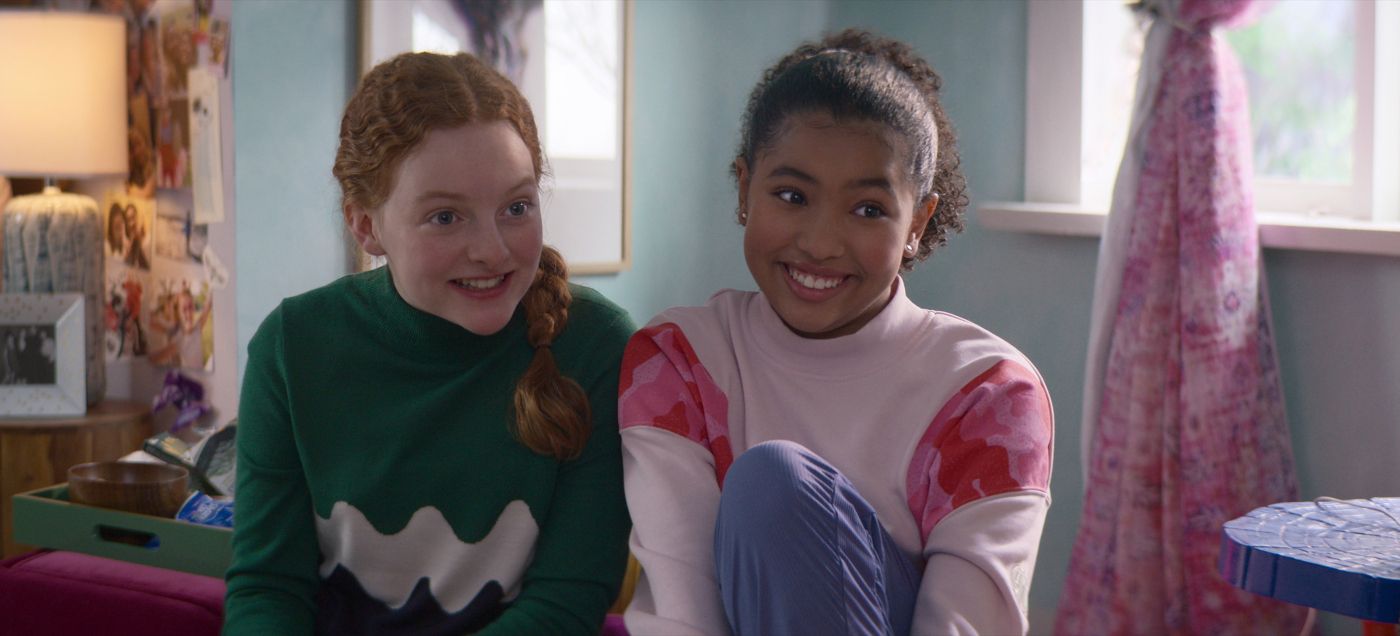
Of course. And I think it also probably works to your advantage that, I feel like at least my perspective of what an actual teenager looks like these days is very, very skewed, just because I've watched way too many CW dramas.
SHUKERT: Yeah, right. They don't look like the kids on Riverdale, who are all gorgeous 26-year olds. And I get why they do that because you can't really do a sexy, sexy teen drama with actual teenagers because you're like, those are children! But if they're just sort of young-looking adults, it doesn't bother you in the same way.
Of course. So one huge thing that happens in Season 2 is Mimi passing away, and I wanted to find out from you what went into that decision?
SHUKERT: Well, when we started writing the season, it was sort of late May of 2020. So it was very early COVID, right? And we felt for the themes of the season, we didn't want to do COVID because who knew what was going to happen. And also it was just that bleak and depressing. But we did feel like we really wanted to kind of obliquely deal with a lot of things that were probably happening in the lives of our audience. So we talked a lot about these things of like loss, of looking for silver linings, of dealing with disappointment, of things not turning out the way you thought they would. And it felt like there were so many kids who were dealing with the loss of family members that it felt like a really valuable story to tell, especially for this age group.
I feel like you often see things that are kind of about death for little kids, and then you see older things, but to lose a grandparent like that at this age, especially one you're so close to you, was such a loss. And it's really so many kids' first real loss — their first real experience with grief apart from the death of a pet or something like that.
It just felt like a really important story. And it also felt like it's really a story about family. Claudia has always felt sort of adrift in her family and she doesn't fit in and Mimi is the only one that understands her. And then when she loses Mimi, she feels like she no longer has a place in her home. And what she sort of realizes by the end of the episode is that she kind of has to take Mimi's place and that that's part of this legacy and that that's something that's comforting of her, and that she's never going to stop missing her, but she can feel like the death gives her some purpose, you know, which is kind of all you can ask for to manage your grief.
That just felt like a really beautiful message to put forward right now, as people are in these difficult family dynamics and dealing with loss and being stuck at home and all of that. Like what's the best way to show up for your family? And who are you in your family? I think a lot of people really wrestled with those issues this year, parents and kids alike. So it felt really timely.
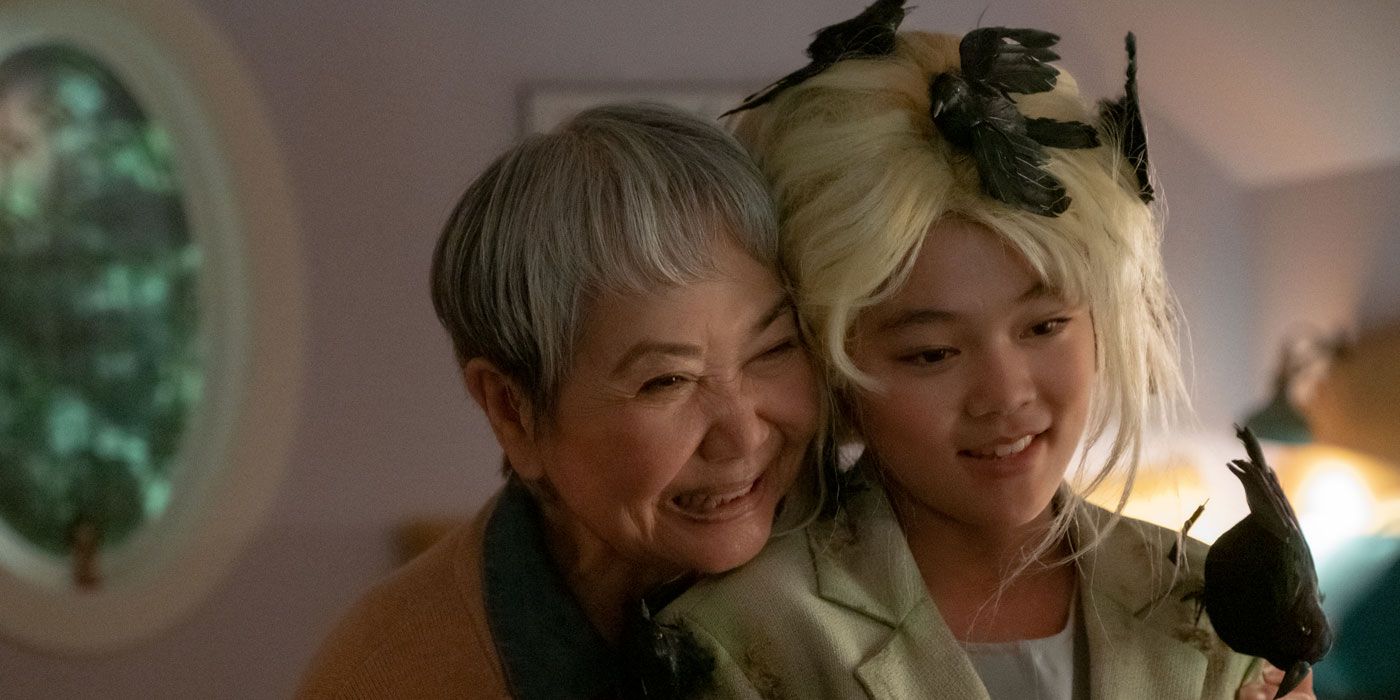
In terms of that, when you're doing this kind of storytelling where you want it to be something adults can watch and enjoy, but the target audience really is this age group. What goes into figuring out ways to talk about issues like this in a way that works for those multiple audiences?
SHUKERT: Well, I feel like the thing that's kind of worked for us is to sort of never really dumb it down or make it too simple. But to also not really ever lean into anything that's sort of gory or really scary viscerally or anything like that. You don't see Mimi's body, that kind of thing. You know? It's how can we deal with the complexity of these emotions without leaning into darkness, basically? I kind of think about how would I explain this to my own kid. I mean, he's little, because I feel like as a parent, I want to be truthful, but you don't want to say something that they're going to remember their whole lives as the most terrifying thing that they've ever heard. So I think about it kind of that way. It doesn't have to like be gritty to be effective and emotionally complex. And just kind of meet kids where they are and what they're aware of.
I mean, my son sometime during the whole COVID thing, I don't know when, we were just like driving and he was like, "Mommy, how do you make people stop being dead?" And my heart stops and I was like, "Oh honey, you can't. You can't. When people are dead, they're just dead. But that's okay. It's just a part of life. Everything that lives will eventually end. That's just sort of the way it is. And we hold them in our heart."
I had this whole speech, just trying so hard to not upset him, but also not lie to him, you know? And then finally I sort of stopped talking. There was a long silence in the back seat. And he goes, "Well, what about true love's kiss?" And I was like, "Oh no, that works too. You can do that." Like Sleeping Beauty.
Sometimes they're not really thinking about the same... And I feel like those moments is kind of where the show lives, you know? Like what adults take seriously, what kids take seriously, what adults worry about and kids worry about is not always the same. And there's a lot of humor and emotion in that gap.
That's something I felt. So I felt myself noticing with this season in particular that there's something so gentle about the conflict of the show. In finding that balance, is it difficult to be like "we have to tell a story, we have to have obstacles and conflicts, but we have a certain tone we're going for here?"
SHUKERT: I mean, I feel like there's a difference between like conflicts and cruelty. Conflict is two people not agreeing. Conflict is somebody thinking something is going to happen. And then something else is going to happen. Making a decision that turns out not to be the right decision. Some obstacle you have to overcome, but I feel like often conflict is kind of confused with anger. And sometimes it's angry and we do have some angry conflicts on the show or things where people are annoying people or get upset with one another.
What I really try to do on the show is show how conflict doesn't have to be the end of a friendship. It doesn't mean that you don't love each other. It doesn't mean that you can't get past it. You just have to deal with the fact that there is conflict. I think one episode like that that I think that we really worked on, especially with that is Dawn's wicked stepsister where, Mary Anne comes to stay with Dawn and stays in her room and Dawn's sort of acting like everything's fine and it's not fine. And she feels all this pressure to sort of sublimate her own feelings about how much Mary Anne is annoying her. And then she flips out on her.
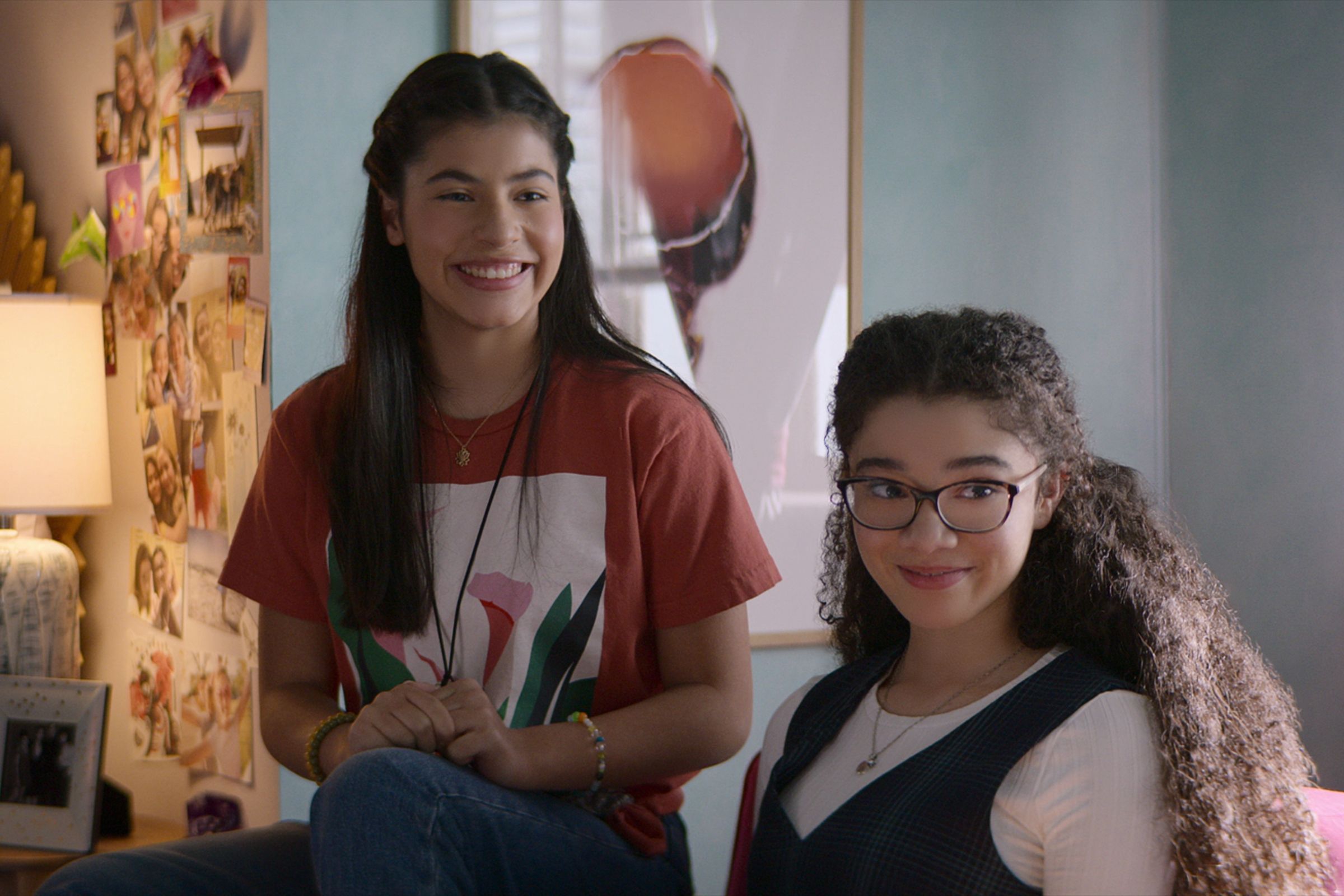
That's not the end of the friendship. They're able to kind of both exhibit some self-awareness and move forward. And I feel like conflict can be gentle because most conflict is gentle. Most conflict comes from the people that you care about. It comes from a fight you're having with your mother or your husband or your kid. Rarely do we have really, truly emotional conflict with people that we don't care about. So if you think of conflict as coming from a place of caring, I feel like you can think about it in a different way.
Empathy doesn't have to be redemptive. We can have empathy for someone without thinking that they're right. But there's usually a reason that people are behaving the way they're behaving. And when you can figure that out, you can kind of figure out how to diffuse the behavior somehow. And I know this all sounds very therapist-like, and I guess it is on some level, but I just, I don't know. I feel like there are very few kids that are... I mean, adults are a different story, but I feel like in my experience, there are very few kids that are truly mean. That meanness in kids usually comes from a different place and it's worth figuring out where it comes from so that they don't just harden into mean adults that are unreachable.
Of course. In contrast to that, in watching the finale, I was very interested to see what was going to happen with Kristy's dad returning, just because I was watching it thinking there's so many different ways this could go. And I'm curious, what prompted the... Because talking about empathy for other characters, the one character who I think there's no empathy for necessarily is Kristy's dad.
SHUKERT: Yeah. Well, we haven't heard Kristy's dad's side of the story, but yes.
That's true.
SHUKERT: But yes. Yeah. I think Kristy's dad is not a good father for whatever reason. He has really, truly failed his family and his kids. And I think the story is really about Kristy kind of accepting that. We talked about it a lot with the analogy of he's like a bad boyfriend. He reaches out, out of nowhere, and you're like, oh my God, it's going to be different this time. And then it's never different. And eventually when you're dealing with someone who's never going to change, you are the one that's forced to change.
And in Kristy's case, that really means looking at who is in front of her, because she actually has a great dad, who cares about her, it's just that she hasn't been able to see that because she's been holding space for her real dad, who for whatever reason, has not kind of lived up to his end of the bargain.
That's sort of part of the theme too, about just kind of looking for silver linings. Finding what you need in unexpected places. And she has a lot of support and a lot of people that love her. And I think the absence of Kristy's father is probably something that she's always going to struggle with on some level. And maybe one day we'll see him. Maybe Season 3, maybe in a movie.
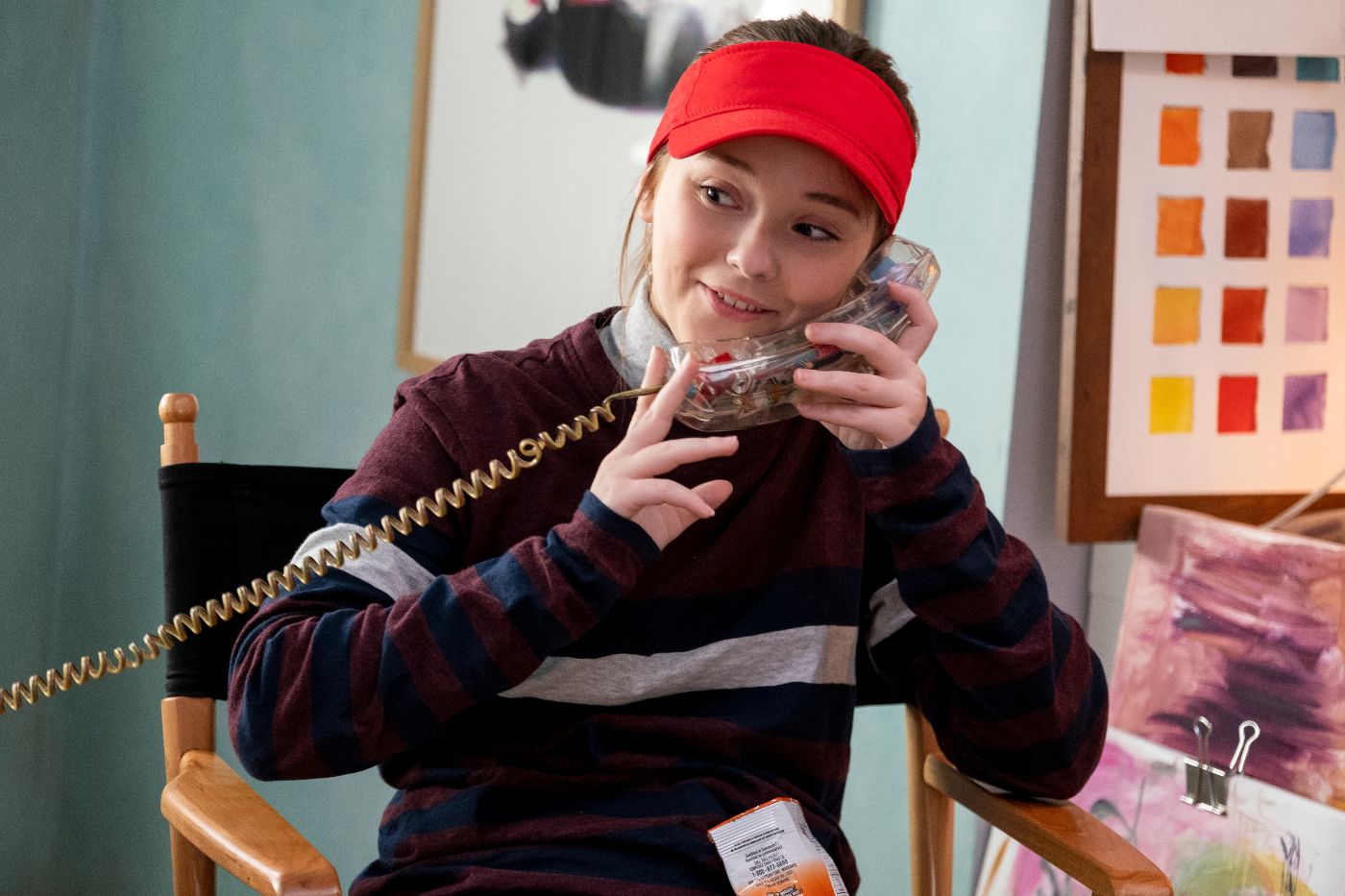
We also all kind of decided that Kristy's dad, whoever we cast is Kristy's dad, is going to be very important. And it wasn't a decision we were ready to make yet. We have some ideas, some of which are funny and we'll never get them. And some which are more realistic, but it felt like that's a big thing that needs its own universe.
For sure. I do feel obligated to ask — a genie grants you a wish and you use it on this. Who do you cast?
SHUKERT: Paul Rudd.
Oh no! Paul Rudd would be so good too. He'd be so good being that bad dad.
SHUKERT: He'd be so good. And it would be a Clueless reunion.
Meanwhile, I do have to say that while I've been familiar with Mark Feuerstein's work for quite some time, I didn't expect him to be quite so good at being the goofy dad that he is.
SHUKERT: But that's really who he is, you know? He's got three kids. He's very game for that. And he really is great with kids and a great, generous actor. And the thing I love about him on the show, too, is I feel like he brings this very East coast energy to it. We shoot in Vancouver and the girls are kind of from all over and Mark is just so clearly a New York guy. I feel like he really makes it feel like you're in suburban Connecticut in a way that I love.
For sure. I want to make sure we talk a little bit about Season 3. I don't believe it's been greenlit yet, but do you have plans in place for it?
SHUKERT: No official plans yet, but I'm very hopeful. And I definitely have thought about where the story will go and what might happen and what a Season 3 or something will look like. So I have those plans in my head and we've talked a little bit about it, but I think we'll just keep our fingers crossed for now.
Of course. I mean, big picture, especially in initial conversations with Netflix, did you have a concept of how many seasons total you'd like this to run?
SHUKERT: I think we always sort of thought at some point, the girls were going to get older and it would be harder. And Scholastic has... You know, they don't age in the book. So there's really no template them to go into high school or anything like that. And also, I think just in terms of as a fan of the books, I feel like these books occupy this obsessive place at this very particular time in your life, which is honestly about two or three years of these sort of tween, early adolescent years. And it felt right to kind of keep it contained in that space.
Of course. So what that sounds like is you don't necessarily see it going much beyond Season 3.
SHUKERT: Yeah. I don't know. We'll see what happens. I'm obviously open to a lot. I love doing this show and I love working with the cast and writers. So it would be amazing, but we'd really have to figure out a way to make it work, I think. And it would probably be a conversation with Scholastic about whether or not they were allowed to go to high school.
You never know. It could work.
SHUKERT: You never know. You never know. We'll see what happens. It would be great.
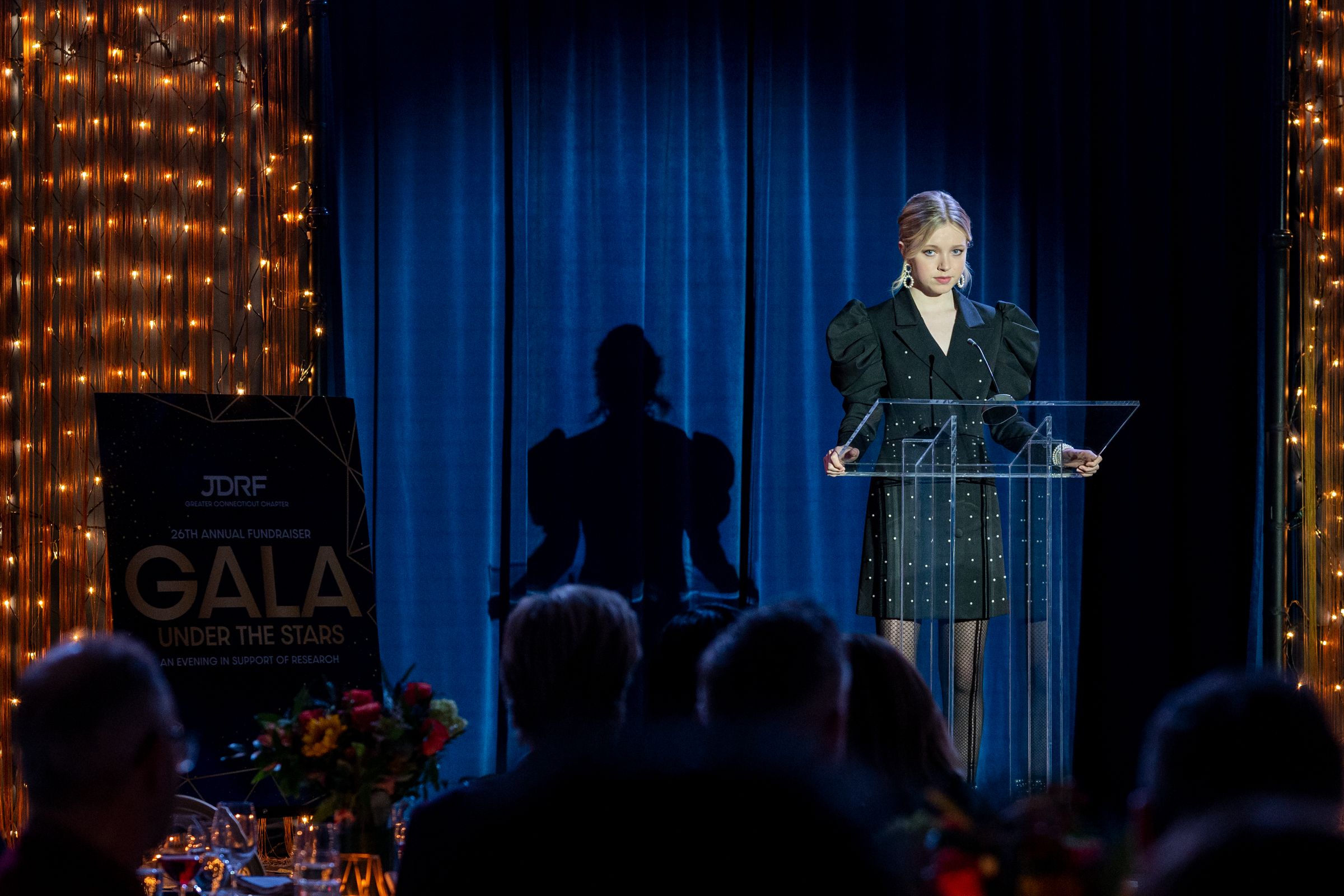
Yeah. A couple of things I want to loop back on really quickly: One thing I was really excited to see was Ryan O'Connell as a writer on the show this season, and I wanted ask you specifically about having him write the big Stacy episode.
SHUKERT: Well, Ryan is a really good friend of mine and I was so thrilled that he was just sort of randomly free when I needed him. And I had wanted him to do the first season actually, and he wasn't available because they were just starting Special the first season, or they had just finished the first season and it looked like they were the going to start the second one. And he was like, I don't want to have to leave you after four weeks or something. And I was like, that's fair.
But honestly having Ryan as just a voice of what it's like to live with a chronic condition like that and have to manage it and be a person outside of that, and the self-consciousness about not wanting to talk about it because you don't want it to consume your identity, but also at the same time, not being ashamed. He has so much insight into that.
It was really so valuable to have him. And he is also just so smart and so funny and has such a great sense of humor and sensibility about that stuff that I feel like he really captures something really special and human and cool. And I loved having that voice in the room.
And then the other thing that was great is that Sascha Rothchild, who's another producer and writer on the show and also a good friend of mine. This year, her husband has had type one diabetes since he was nine or 10, also just like Stacy. And she's his medical point of contact, like she has his glucose monitor app on her phone. She really knows all the ins and outs of living with someone that has this condition and how it has to be managed and its kind of ups and downs and how the technology changes and just all of these little granular, logistical things about just the day to day of it. That was also super, super helpful. So the two of them together were really amazing. And it made me feel much more comfortable dealing with some of these issues more in-depth, you know?
To wrap up, what kind of response are you expecting from the fans? Are there things that you're not necessarily sure they're going to love? Are there things that you think they are going to love?
SHUKERT: I mean, I really hope they like it. It'll mean so much. I feel like such a custodian of these beloved characters and property. And so every year I feel very nervous that I've just done right by them, you know? So I feel like there's a lot of things that people are going to like. There's certainly a lot of fan service with the baby parade and Mimi and various things, but they're all also some real licenses we've taken again. And I hope that they're going to be okay with that. For example, Ashley Wyatt is kind of a different character in the series than she is in the books. We've kind of mixed up the order of things a little bit more. Sharon and Richard don't get married the way that they do in the books. I feel like some of the bigger plot points are more different this season, so I'm hoping people are going to be okay with that.
I'll tell you the thing I'm the most nervous about. There's a very nice person on Twitter who loves Shannon Kilbourne from the books, a character, who lives in Kristy's neighborhood. She's introduced in [the book] Kristy and the Snob, and so she's snobby to Kristy and Amanda Delaney is also snobby to Kristy. And then they become friends and whatever. And I've gotten many tweets from this lovely person being like, "is Shannon Kilbourne going to be in the series? I really hope so. She's my favorite." And I'm like, kind of? We sort of have taken elements of Shannon things and put them into Amanda's mother and stuff. But it's definitely not the Shannon Kilbourne that we all know and love. So I hope that's going to be okay with this one lovely fan. That's so much of my anxiety is projected right now.
Well, I hope that one fan is also happy. The actual last thing I'm going to ask you is in thinking about Season 3, off the top of your head, what's one title you really want to do?
SHUKERT: Oh. Oh, geez. I mean, I love Little Miss Stoneybrook and Dawn so much. It's my favorite book in the series. I have a copy that Ann M. Martin signed to me, because she knows it was my favorite, and it's my most treasured possession. And we couldn't do it this year, because it's a lot of little kids and there's a whole lot of people. And COVID restrictions were such that we had to really kind of be very careful about anything that had big crowds and a lot of kids.
So my hope is that things will ease up enough in Season 3 that we could do that one. Because seeing them prepare all of their favorite little girl charges for this ridiculous kind of beauty pageant is hilarious. It's a really funny book. And I always really, really liked it. And it also has a lot of emotional heart with Dawn's family and her mother. And so I hope we can do that.
The Baby-Sitters Club Season 2 is streaming now on Netflix.


التعليقات على الموضوع